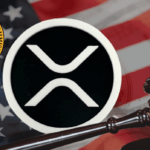
Chainlink Lauds SEC Guidelines, Paving the Way for Cryptocurrency Adoption in Institutional Finance
The US Securities and Exchange Commission (SEC) has released new guidance that may encourage wider institutional engagement with digital assets.
On May 15, an updated FAQ was made public, clarifying how current securities regulations pertain to broker-dealers and transfer agents involved in cryptocurrency services.
SEC Commissioner Hester Peirce commented that this guidance is “incremental, not comprehensive,” indicating that more extensive regulatory changes are forthcoming.
She stated,
“Most of the responses to these FAQs should not raise eyebrows, as they merely restate what our regulations already articulate or omit.”
Chainlink viewed the update positively, describing it as a critical advancement, as it addresses ongoing concerns from financial institutions regarding the use of public blockchains for recordkeeping, regulatory compliance, and safeguarding data privacy.
Despite the SEC’s announcement going largely unnoticed, reports suggest it was influenced by conversations between Chainlink Labs and the SEC Crypto Task Force that took place in March.
Earlier in the year, Chainlink’s legal team demonstrated how smart contracts and privacy-focused middleware could align with securities regulations on public blockchains. Co-founder Sergey Nazarov also briefed staff on a cross-chain transfer-agent system that automates compliance while reflecting traditional processes.
These discussions reportedly aided the SEC in developing language related to “unified golden records” and “smart-contract-driven compliance checks,” which are now included in the FAQ.
SEC’s crypto guidance
The update elaborates on how existing regulatory frameworks, including custody responsibilities and capital requirements, intersect with digital assets.
The SEC clarified that broker-dealers managing non-security cryptocurrencies like Bitcoin and Ethereum are exempt from the customer protection regulations specified in Rule 15c3-3, which are applicable solely to securities. This clarification provides firms with a clearer understanding of which digital assets fall under traditional custody regulations.
Additionally, the guidance outlines the approach broker-dealers should take regarding their digital asset positions for net capital calculations.
While the primary focus is on Bitcoin and Ethereum, which currently underpin approved exchange-traded products (ETPs), the SEC emphasizes that broker-dealers are not limited to just these two assets.
However, the agency also warned that digital assets not categorized as securities do not enjoy protections under the Securities Investor Protection Act (SIPA), which means customers could face heightened risks when holding non-security cryptocurrencies through registered entities.
Beyond broker-dealer guidance, the updated FAQs address how transfer agents can utilize distributed ledger technology (DLT), including public blockchains, for maintaining securities records.
The SEC noted that transfer agents are permitted to employ DLT as their official Master Securityholder File, as long as they adhere to all recordkeeping, compliance, and reporting mandates in line with existing securities laws.
Furthermore, the Commission stated that the choice of technology is left to the transfer agent, provided that the records remain secure, accurate, accessible to the SEC, and retained for the mandated duration.
Implications for markets and Chainlink
The immediate consequence is that US financial institutions can start migrating essential fund operations onto blockchains, utilizing regulator-endorsed and established infrastructure. This transition could lead to significant cost reductions in the $132 trillion global fund-administration sector.
For Chainlink, this development serves as a validation. With CCIP now enabling real-world institutional initiatives and having a role in shaping federal policy, the project is increasingly seen as the essential link between traditional finance and compliant on-chain financial practices.
| Date | Event |
|---|---|
| Mar 24 2025 | Chainlink legal team meets SEC Crypto Task Force |
| Mar 28 2025 | Sergey Nazarov briefs SEC on cross-chain transfer-agent model |
| May 12 2025 | SEC Tokenization Roundtable—Atkins sets pro-blockchain tone |
| May 15 2025 | Division of Trading & Markets publishes blockchain FAQ |
Summary
After enduring years of regulatory stalemate, the US has effectively approved the use of public blockchains for securities infrastructure. Chainlink, already integrated with institutions and now influencing policy in Washington, seems poised to become the preeminent middleware for the future of tokenized finance.



















Post Comment